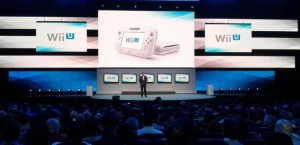Nintendo E3 absence is huge gamble that could lead to change
Nintendo will not be attending E3 this year. Or at least, it won't be attending in the same capacity that it has in previous years. Last week the much-loved platform holder confirmed that while it would hold behind-closed-doors events for distributers and the gaming press, there wouldn’t be a full, wacky conference to show off the latest software including Mario, Luigi and company. The news has baffled most observers, who wonder why Nintendo is choosing to skip the most anticipated E3 event in years. The question on everyone's lips: Has Nintendo made a huge mistake?
Perhaps it shouldn't be such a surprise that a company lauded for its innovative methods when rivals seem to stand still is taking such a gamble here. Nintendo has never played by the rules, it has always moved in the direction opposite to where it's expected to go. The big E3 conferences have been a staple part of Microsoft, Sony and Nintendo showing off what they have in store over the coming year, but it's increasingly looking like an old-fashioned way of doing things.

In this age of new media, where we can consume our news immediately through social networking, live streams and other means, there is less of a need for one big event every year to show off your goods to the press in attendance. What matters most is getting your message out there in a clear and concise manner to as large an audience as possible.
Nintendo is trying new things with its Nintendo Direct conferences, an experiment that appears to be working by exciting fans and revealing information about new games online. It doesn't have the hype and glitz of an E3 event, but since 2011 each Nintendo Direct presentation has improved and you can always expect to be moved by something new on show.
And don't forget the high price of putting on the big conferences. For a company struggling to keep itself in the black every year, spending an excess amount of money on E3 probably isn't the healthiest option. Nintendo Direct is certainly a more cost-effective and efficient way of doing things, but the biggest factor in Nintendo's decision is almost definitely the anticipation leading up to what Microsoft and Sony has in store.

The gaming giants will reveal even more details about their next-generation hardware, and probably a large range of software as well. All eyes are on Sony and Microsoft as they go head-to-head and start off the next cycle of a console war, but where does that leave Nintendo? It leaves them with less of the spotlight and less mainstream attention, especially with no new consoles to show off.
Putting all factors into consideration you can understand why Nintendo chose to take a year off, although at this point it's hard to tell whether it's the right decision. The only certainty is that this is a massive gamble. The Wii U is in desperate need of some attention, or it could follow the Dreamcast and GameCube as quirky little systems that just didn't interest enough people. Momentum is a huge part of the game's industry, and buzz created by the hugely successful Wii over its tenure will be lost before too long. It could also spell the end of Nintendo's role as one of the 'big three' platform holders, especially if they don't have confidence that the Wii U can compete with its rivals.
The only thing that can be said with any certainty is that the eccentric Nintendo presentations featuring Satoru Iwata and Shigeru Miyamoto being sucked into a 3DS will surely be missed.




